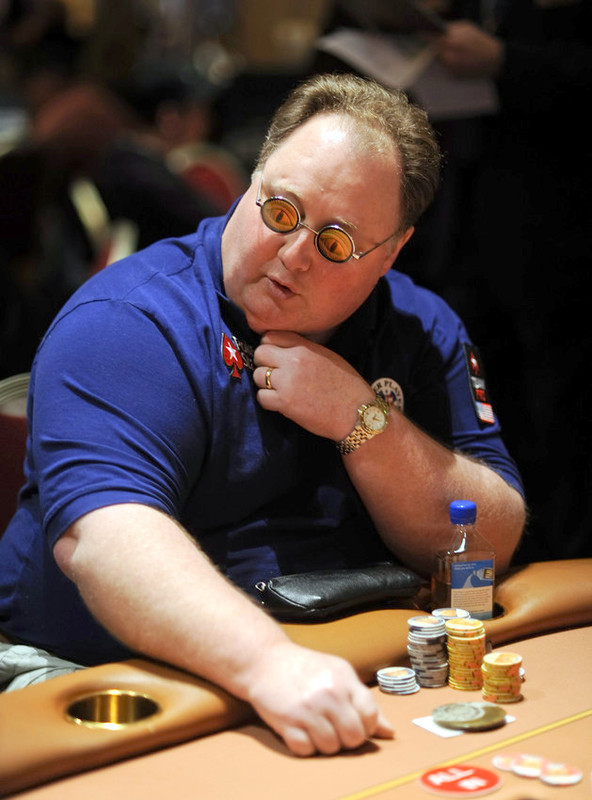






Cognitive Biases: Part 1by Greg Raymer | Published: Apr 20, 2022 |
|
|
Card Player Magazine, available in print and online, covers poker strategy, poker news, online and casino poker, and poker legislation. Sign up today for a digital subscription to access more than 800 magazine issues and get 26 new issues per year!

Greg Raymer
@FossilMan, or send me a message at info@fossilmanpoker.com.
A few issues back, I discussed a couple of ways that evolution has failed us humans, at least with respect to operating at maximum efficiency in modern society. The issues I wrote about, over-dependence on pattern detection and believing there needs to be significance to cause-and-effect, are examples of cognitive biases.
Many, even most of us, tend to fall prey to these biases, even when there is clear and convincing evidence to the contrary. There are many dozens of these cognitive biases that have been extensively studied by scientists. They cannot be ignored, except at our own peril. We instead must embrace the fact that we suffer from these biases, and then learn to overcome them.
I’m going to start a series of articles where I will discuss some of these biases that pose a particular risk for poker players. Remember, we all fall prey to these biases. In many ways, they are built into our DNA. They likely served us well many thousands of years ago when we were hunter-gatherers. But in today’s world, both in general and when playing poker, these biases can undermine our efforts, and cause us to make serious mistakes.
I’ve discussed in past articles how poker players tend to overrate themselves. We also tend to underrate our opponents. This is related to one of the most harmful of the cognitive biases, the Self-Serving Bias.
The self-serving bias leads us to blame our failures on the circumstances around us, yet give ourselves full credit for our successes. This bias does have some benefits. It protects our psyche from blaming ourselves too much when things go poorly. But in the long run, that benefit is more harmful than helpful, when it prevents us from looking at the facts realistically.
The Self-Serving Bias probably sounds familiar to you. How many poker players do we know (including ourselves) who blame bad luck for our losses? Yet, when we win, we give ourselves, and our skill, full credit? In the short term, this bias is not a concern. But it leads to some serious long-term harm to our game, primarily our ability to improve.
If all our bad results are caused by bad luck, there is no incentive to work on our game and get better. Clearly, we must already be playing perfect, since we only lose because of bad luck. If it weren’t for those other idiots getting lucky all the time, we would always win, right? If you think like this, why would you work on improving your game? Playing better can’t change bad luck. So, what’s the point?
I see this constantly as I travel the country playing poker. In fact, if I could read minds, I suspect that at least 90% of the players out there honestly believe they are the best player at the table every time they sit down. And with that attitude, you are probably not working as hard as you should, while at the table, to understand each opponent, and how they play.
Again, what’s the point? They’re just idiots who constantly get lucky, there’s nothing you can do about that, right? But this opinion means you aren’t learning their nuances, how to read them, when is the best time to try a bluff, and so on.
This also puts you in a mindset that they can’t even really think about the game properly. They are just “clicking buttons” at random, right? If instead you look more closely at their decision-making, you gain an opportunity to learn so much more.
Even if they are not great players, you will learn how they think about situations, and therefore how to best exploit their weaknesses. More importantly, you will now be open to the idea of actually learning from them. Maybe the decision they made wasn’t just dumb luck. Maybe it was a brilliant move that tricked you into paying them off. It is dangerous to underrate your opponents. More importantly, it is costly.
To avoid the trap of the Self-Serving Bias, you must remove your ego from the situation. You must believe that you are less than perfect, that you make mistakes, and that you can learn and improve. And then you must realize that other players don’t win, or lose, simply due to good and bad luck. They are making decisions. Maybe some of those decisions are actually brilliant, and if you see that truth, you can learn from those decisions, incorporate them into your game, and become even better.
Have fun, and Play Smart! ♠
Greg Raymer is the 2004 World Series of Poker main event champion, winner of numerous major titles, and has more than $7 million in earnings. He recently authored FossilMan’s Winning Tournament Strategies, available from D&B Publishing, Amazon, and other retailers. He is sponsored by Blue Shark Optics, YouStake, and ShareMyPair. To contact Greg please tweet @FossilMan or visit his website.
Features
Tournaments
Strategy
Commentary & Analysis